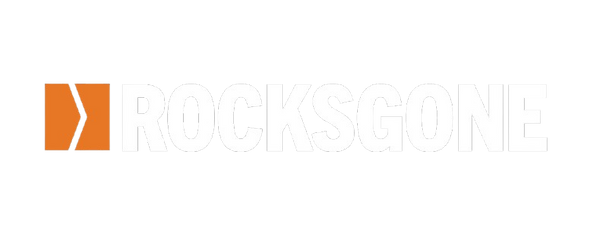John and Shane Rathjen with a hunk of limestone rock, one of the few of its size left in the paddock at Cambrai after being reefinated.
Quinton McCallum, Stock Journal, 8 Nov 2020
A HEALTHY barley crop is standing on a previously non-arable paddock near Cambrai thanks to a bold management decision by Millendella father and son John and Shane Rathjen.
After buying land at Cambrai three years ago to bring their total cropping area to 650 hectares, the Rathjens soon encountered a problem.
The paddocks were littered with limestone rock, some patches worse than others, which caused major headaches in their initial seeding and ploughing attempts.
"After the first year of sowing here we'd had a guts full with broken machines and busted points," John said.
"It took us three days to sow 100 hectares and I spent more time on the welder fixing things than what we did sowing," Shane said.
"Two years ago we tried to work it up with a chisel plough, thinking if we worked it up it might make it better, but we only got halfway through the paddock and we lost 40 or 50 points over the whole lot."
After a couple of years of frustration and not being able to crop the new block, the Rathjens opted to try a Reefinator - a sled with hardened tines mounted in front of a cylindrical ribbed roller that is pulled behind a tractor and designed to rip and shatter surface rock.
"We had seen the Reefinator on the internet, went to a field day and spoke to a couple of guys - one who makes them over in WA and another who said we wouldn't look back," Shane said.
"It's expensive at the time but it's definitely paid for its way.
"It has turned land into productive land because we wouldn't have been able to sow it otherwise.
"We did 95ha this year and have another 100ha to do next year. Eventually we'll do the whole farm."
John spent about ten days reefinating, saying it performed best when the tractor was driven at six kilometres an hour and when conditions were bone dry.
He said the number of passes needed depended on how rocky the paddock was, with rocky ridges requiring multiple passes from different angles in order to break the rock down into a manageable size.
The Rathjens have already noted a marked difference, with seeding done at normal rates and without disruption, while they are hoping the barley crop will yield 1.5 tonnes a hectare - average in the region - when they begin harvest in three weeks' time.
"The soil is a lot better here than some of our harder ground where the root systems reach a shallow point then go horizontal," Shane said.
"If you have a wind on the harder ground, the crop blows over, whereas on this, the reefinating has allowed the root systems to go downwards and create a stronger network."
RESULTS TO COMPENSATE FOR UPFRONT EXPENSE
WHILE Shane and John Rathjen say the cost of using a Reefinator to improve their rocky soils isn't cheap upfront, they are confident it will pay off at harvest time.
The Rathjens hired the machine and ran it over 95 hectares, transforming non-arable land into a 1.5 tonne a hectare barley crop.
"It worked out to be $90 an hour for the machine, you're looking at $20 to $40 an hour for fuel and about $10 an hour for points because you've got to supply them and they last about 40ha," John said.
"It's a big step because it's not cheap and you have to do it way before you start seeding and you don't know whether you're even going to be able to sow.
"I've budgeted $10,000 a year on reefinating. We'd like to go ahead and do the whole lot but it's too big a risk.
"We'll go from one paddock to the next until we get around."
Dependent on barley price fluctuations, the Rathjens expect a return of $380/ha on the reefinated country and estimate the process cost up to $150/ha once fuel and parts were accounted for.
The machine has also helped level off some sharp slopes, which the Rathjens say will be beneficial at harvest time.
After two years of basically no returns from their cropping program due to the dry conditions on the Murray Plains, the Rathjens are quietly confident as they prepare the header this year.
"Things weren't looking so good in July, but the season has actually turned out alright," Shane said.
"August was our big turnaround month here, having about 75mm."
https://www.stockjournal.com.au/story/7000067/rock-on-reefinator-aids-paddock-transformation/
